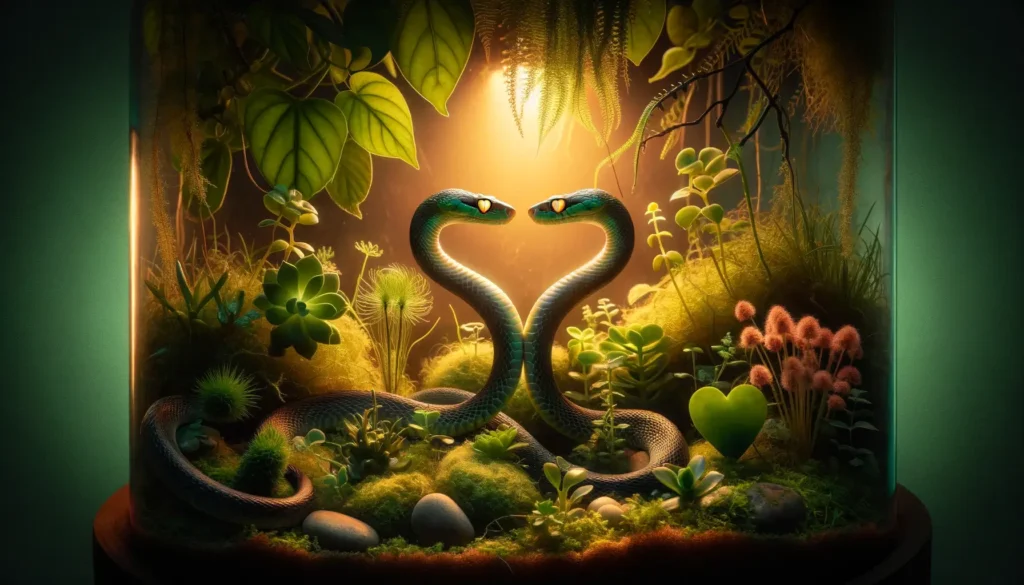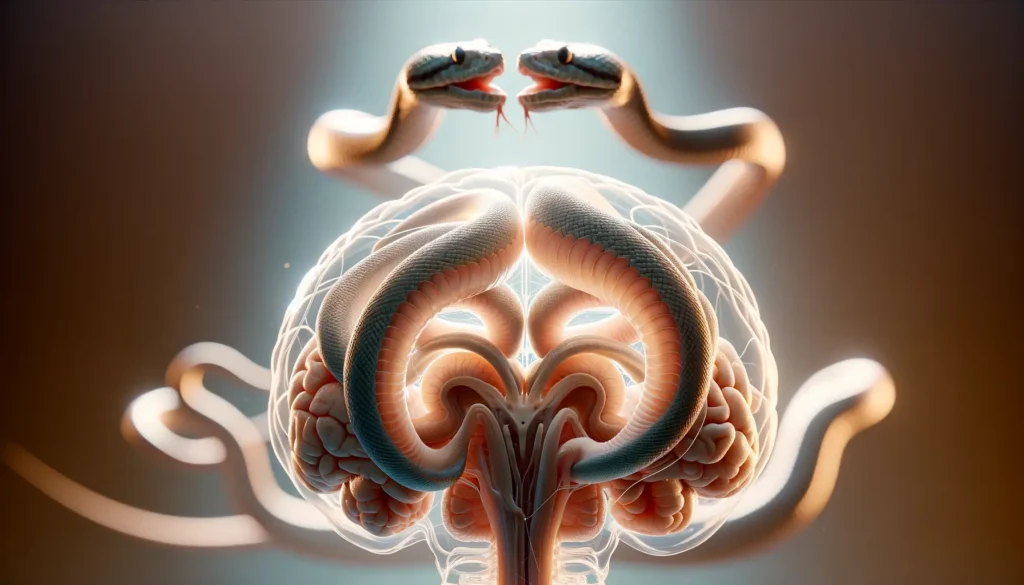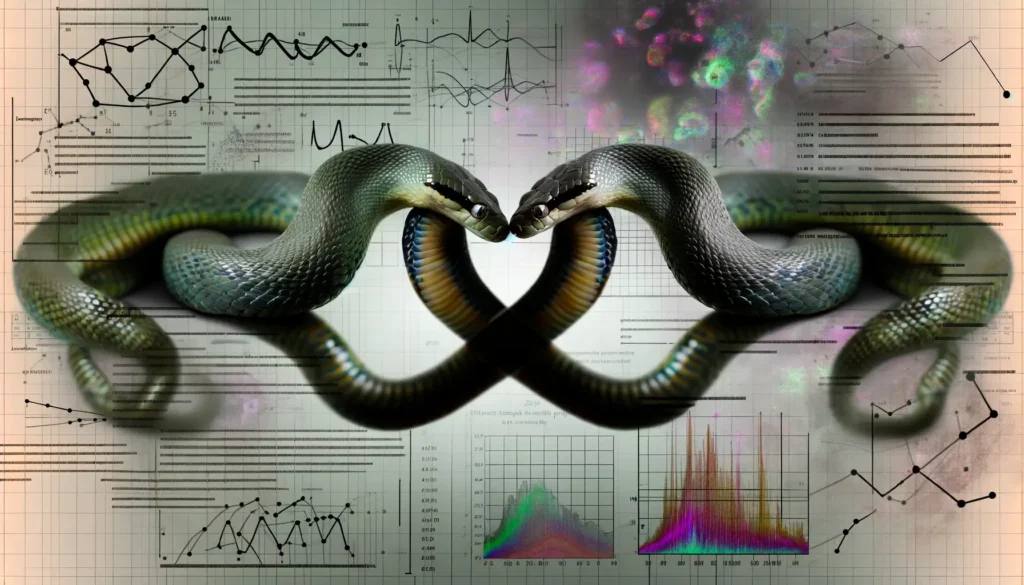Have you ever wondered if our slithering friends experience the tender throes of affection? You’re not alone. It’s a common question whether snakes, with their reptilian brains, possess the capacity for emotions such as love. While we can’t exactly ask a snake about its feelings, we can analyze their behaviours, interactions, and neurological makeup for clues. So, let’s embark on this journey together, unravelling the enigmatic world of reptilian romance. There’s more to these cold-blooded creatures than meets the eye, and you might be surprised at what we uncover.
Understanding Snakes’ Emotional Capabilities
Often misunderstood, snakes possess a surprising degree of emotional complexity that is crucial to their mating behaviours. You might be curious: can snakes feel love? Can they feel affection? The answer isn’t straightforward.
When it comes to love, humans view it through a lens of emotions, social bonds, and personal experiences. Projecting these sentiments onto snakes can lead to misconceptions. So, can snakes feel love for humans? Unlikely, as their emotional capabilities are quite different from ours. Their brains are not wired to experience emotions as humans do, which includes the feeling of love.

However, this doesn’t mean they can’t form connections. They exhibit unique behaviours during courtship and mating, suggesting emotional complexity. Why can snakes feel love or something akin to it? It could be tied to survival and reproduction – notions of affection that serve a practical purpose.
In essence, can snakes not feel love? Not in the human understanding of the word. But can snakes feel love or affection in their unique way? Research indicates it’s a possibility. All in all, understanding snakes’ emotional capabilities is a captivating journey into the wild unknown.
Exploring Reptilian Brain Structure
To appreciate the emotional capabilities of snakes, let’s delve into the structure of the reptilian brain, which, despite its simplicity compared to mammalian brains, plays a fascinating role in their behaviour and cognition. Like other reptiles, the snake brain contains three primary parts: the cerebrum, cerebellum, and brainstem.

The cerebrum, the largest part, controls decision-making and higher-order thinking. It’s less developed than in mammals, which may limit the depth of emotions snakes can experience. The cerebellum, responsible for motor control and physical reactions, is relatively large, reflecting snakes’ sophisticated movement patterns.
The brainstem is the most primitive part of the brain, controlling basic survival functions like heart rate and breathing. It also plays a key role in instinctual behaviours, which are crucial for a snake’s survival.
Interestingly, snakes lack a limbic system, the part of the mammalian brain associated with emotions. This might suggest that snakes don’t feel emotions like mammals do. However, the reptilian brain is efficient at what it does, and its simplicity shouldn’t be mistaken for lack of complexity. It’s a marvel of evolution, perfectly adapted for a snake’s needs. Understanding this can help us better appreciate these intriguing creatures.
Snake Interactions: Instinct or Affection?
While observing snakes, you might wonder whether their interactions are driven by instinct or hint at a form of reptilian affection. This question often sparks curiosity in those fascinated with these creatures.

To help clarify this, let’s examine four key points:
Survival Instincts: Like all animals, Snakes are governed by survival instincts. These instincts play a dominant role in their behaviour, whether hunting, avoiding predators, or mating.
Limited Emotional Capacity: Snakes have complex neurological systems, but current scientific consensus suggests they don’t experience emotions like mammals do. Their brains aren’t built for it.
Interactions as Communication: Snakes do interact with each other, especially during mating. However, these interactions are more likely forms of communication than expressions of affection.
Environmental Factors: Environmental factors such as temperature and food availability can also influence a snake’s behaviour. These factors lead to changes in activity levels, which could be misinterpreted as affectionate behaviour.
Observational Studies on Snakes’ Behaviors
Building on what we’ve learned about instinctual behaviours in snakes, let’s now examine some specific observational studies that shed light on these unique reptilian interactions. You’ll find that the conclusions are intriguing, and they provide a deeper understanding of snakes’ behaviours.

Recent studies where snakes were observed in captive and natural environments reveal fascinating insights. In one study, it was observed that snakes displayed what researchers call “site fidelity.” That’s a term used to explain a creature’s tendency to return to the same locations. In the context of snakes, it suggests a strong territorial instinct.
Another study focused on the feeding habits of snakes. It revealed that snakes aren’t just opportunistic feeders. Instead, they showed signs of preference and selectivity. They were seen to reject certain prey, exhibiting a degree of discernment that’s not purely instinctual.
In a third study, researchers noted that snakes displayed what can be described as ‘social behaviours.’ They were seen to assemble, even intertwine, during basking or hibernation. This social interaction is often mistaken for affection or bonding.
These observational studies underscore the complexity of snakes’ behaviours beyond mere survival instincts. They offer a glimpse into the intriguing world of these misunderstood creatures.
Reptilian Emotions Revealed
Diving deeper into reptilian behaviour, you’ll find that some studies suggest snakes may possess a semblance of emotion, challenging traditional views of their emotional capabilities. This shift in perception isn’t without substantiation.

Here are four main points of interest:
- Selective Social Behavior: Snakes can exhibit selectivity in their interactions, much like mammals, which could indicate emotional capacity.
- Environmental Response: They respond to their environment in ways that suggest more than just instinctual behaviour. This might hint at the presence of basic emotions.
- Stress Indicators: Snakes show clear signs of stress when their well-being is compromised, suggesting emotional reception and processing.
- Learning Ability: They can learn from their experiences, which could be linked to emotional development.
Thus, while it’s still a burgeoning field of study, there’s growing evidence to suggest that snakes, and possibly other reptiles, may have a more complex emotional life than previously assumed. So, the next time you see a snake, consider it might feel more than you’d think. This understanding may foster a deeper respect and appreciation for these misunderstood creatures.

